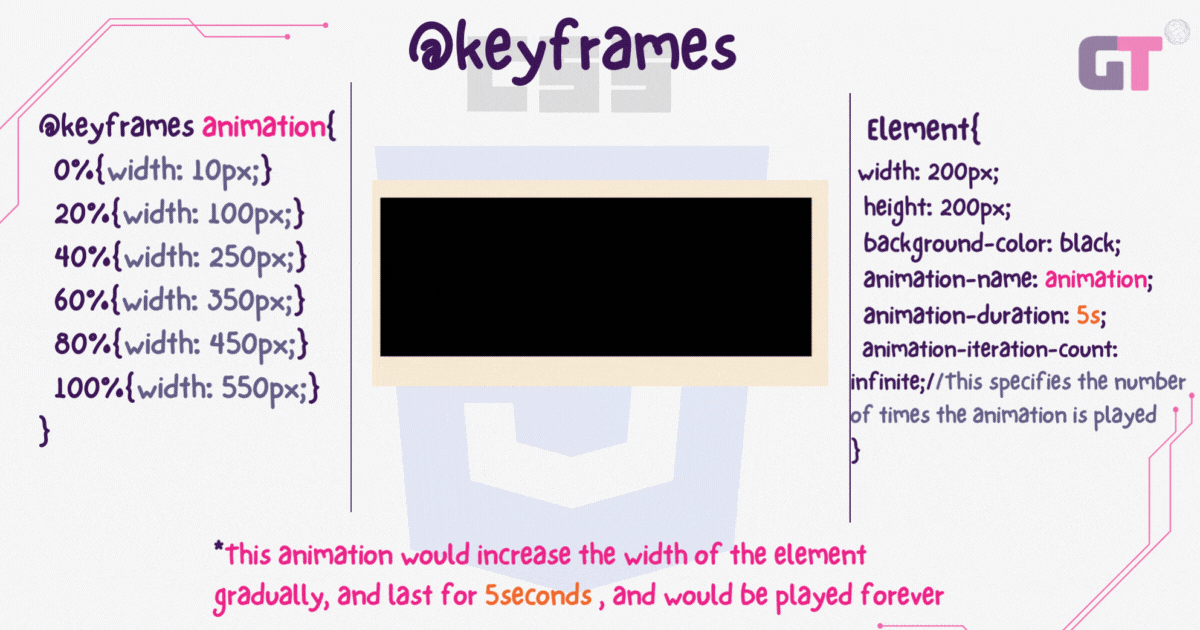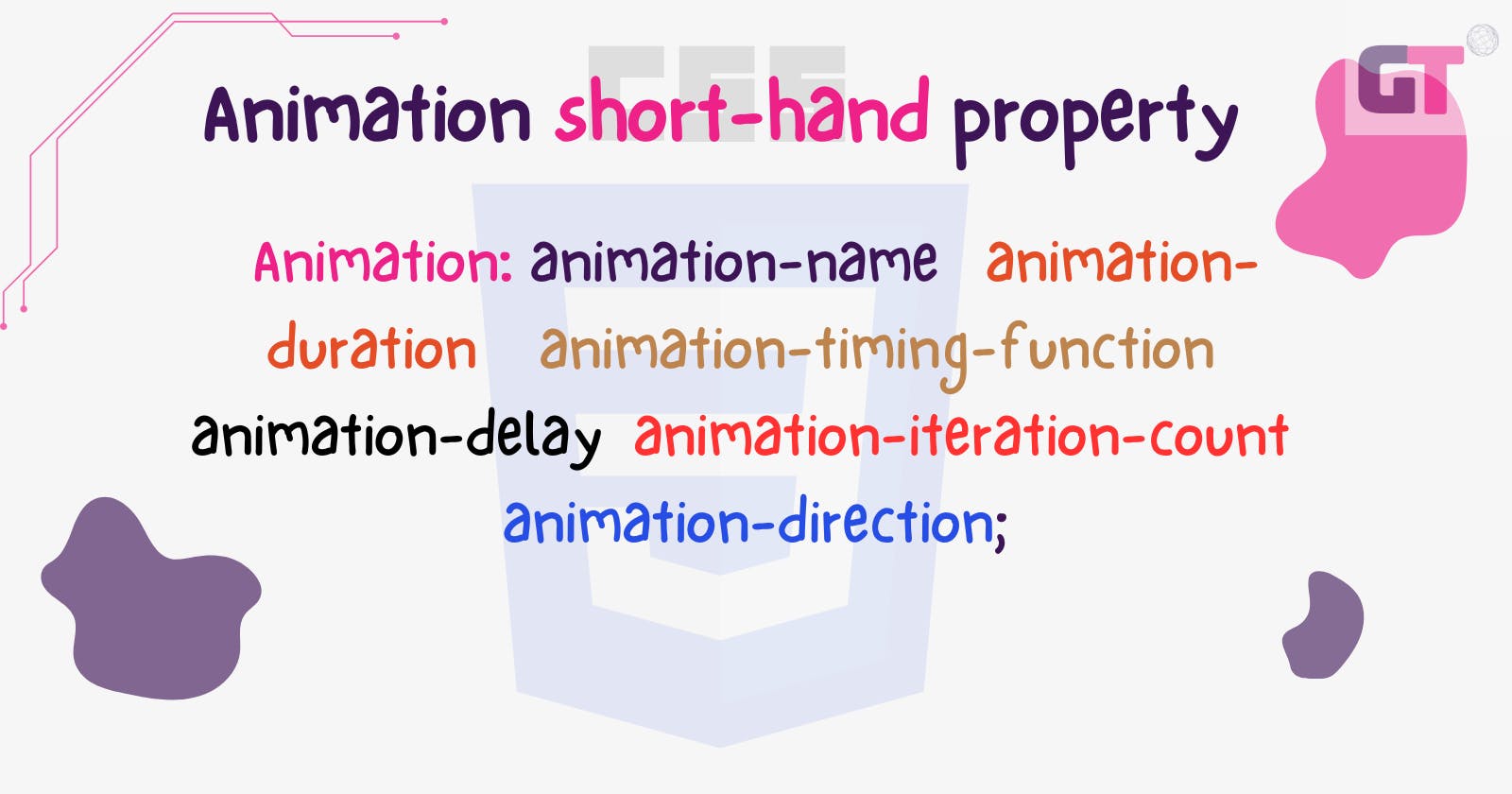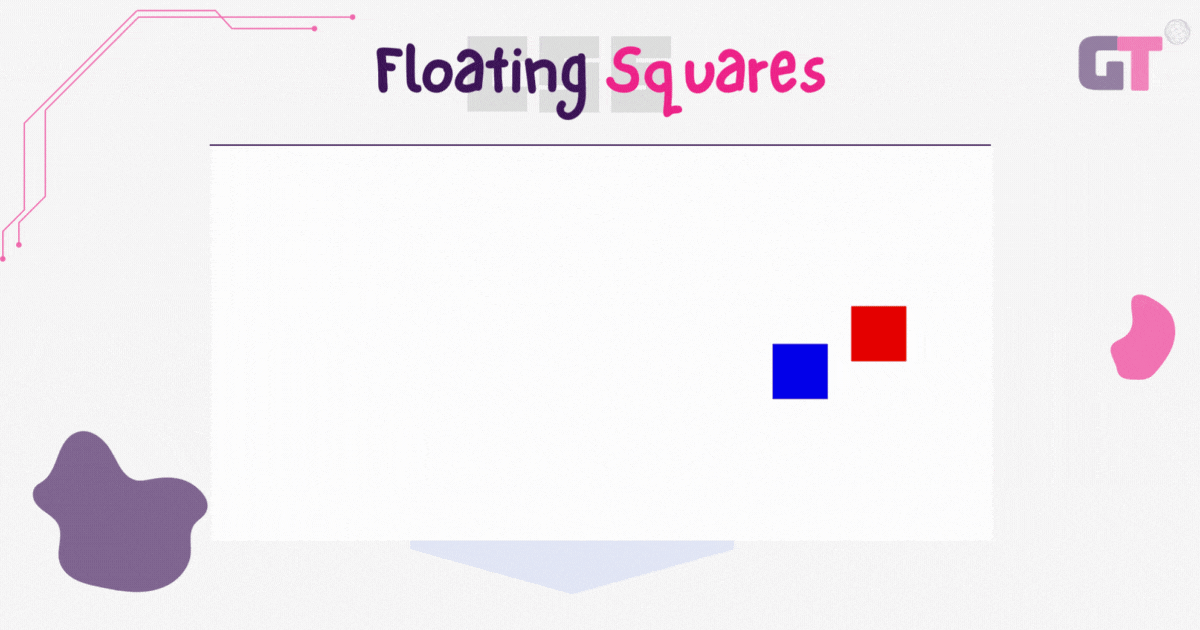"A CSS animation lets an element gradually transition from one style to another."
It is well known that CSS can be used to design and beautify a webpage, but its power goes beyond that. CSS allows us to animate HTML elements without the use of JavaScript.
Keyframes
Keyframes contain the styles an element would possess at a certain time. The animation works by gradually changing the current style of the element to a new style at the specified time. You can change different styles like colour, width, height, position, etc

Animation short-hand property

| Animation Property Values | Function |
| animation-name | specifies the name of the keyframe |
| animation-duration | specifies how long it would take to complete the animation |
| animation-timing-function | specifies the speed of the amination |
| animation-delay | specifies the time to wait before the animation starts |
| animation-iteration-count | specifies the number of times the animation would play |
| animation-direction | specifies whether the animation is played forward, backwards or alternate. |
Animation-timing-function

-Ease: The animation starts slow and then becomes fast before it ends slow.
-Ease-out: The animation starts fast and ends slow.
-Ease-in: The animation starts slow and ends fast.
-Linear: The speed of the animation is constant.
-Ease-in-out: The animation starts slow and ends slow.
Project: Floating squares
This is a fun and easy project to practice and play around with CSS animations
Step 1: Create two div, with id's "square1" and "square2".
<div id="square1"></div>
<div id="square2"></div>
Step 2: In your CSS file, specify the height, width and position of your squares. Ensure the position is set to absolute.
#square1{
width: 70px;
margin-right: 20px;
left: 800px;
height: 70px;
position: absolute;
top: 240px;
}
#square2{
width: 70px;
margin-right: 20px;
left: 400px;
height: 70px;
position: absolute;
top: 230px;
}
Step 3: Create your keyframe, and change the values of the left and top attributes, and also the background colour.
@keyframes float1{
0%{left:1000px;
top: 250px;
background-color: red;
}
30%{left: 800px;
top: 200px;
background-color: orange;}
70%{left: 500px;
top: 300px;
background-color: yellow;}
100%{left: 380px;
top: 350px;
background-color: green;}
}
@keyframes float2{
0%{left:900px;
top: 300px;
background-color: blue;}
30%{left: 750px;
top: 150px;
background-color: indigo;}
70%{left: 600px;
top: 250px;
background-color: violet;}
100%{left: 380px;
top: 300px;
background-color: teal;}
}
Step 4: Add the animation property to your squares. Then you are done!
.square{
width: 70px;
margin-right: 20px;
left: 800px;
height: 70px;
position: absolute;
top: 240px;
animation: 5s linear 0.2s infinite float1;
}
.square2{
width: 70px;
margin-right: 20px;
left: 400px;
background-color: red;
height: 70px;
position: absolute;
top: 230px;
animation: 5s linear 0.2s infinite float2;
}

Thanks for reading!!, Please don't forget to like, share, follow and comment :)
